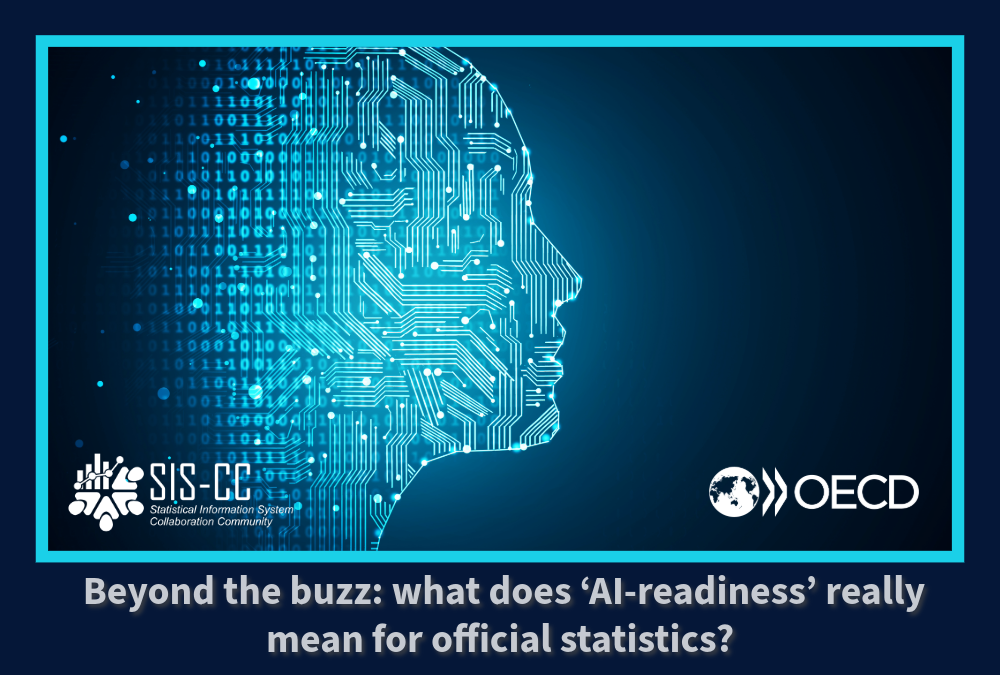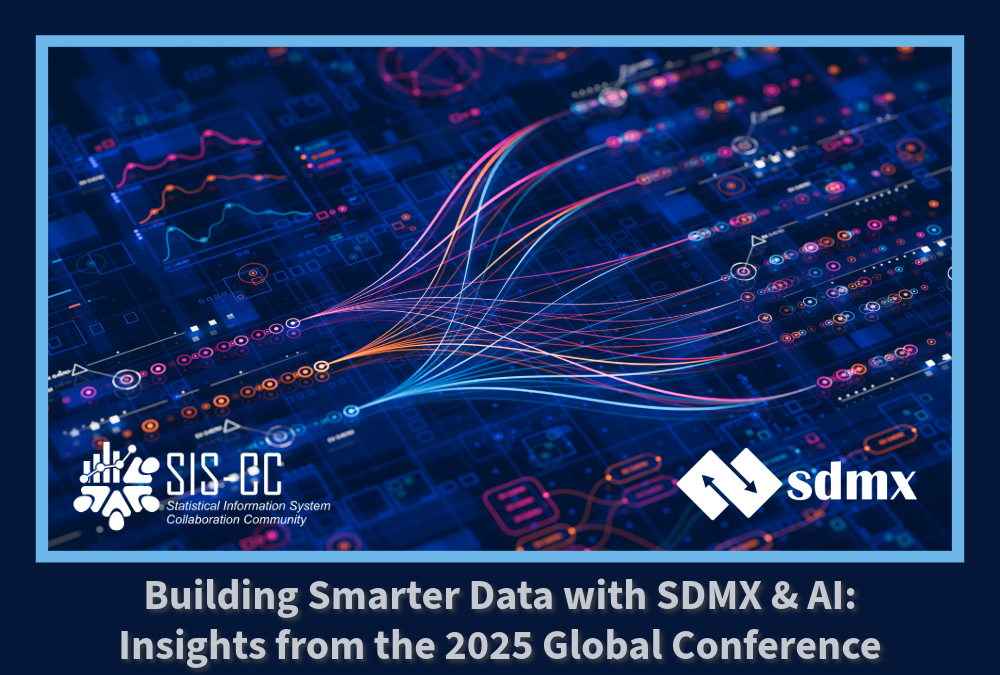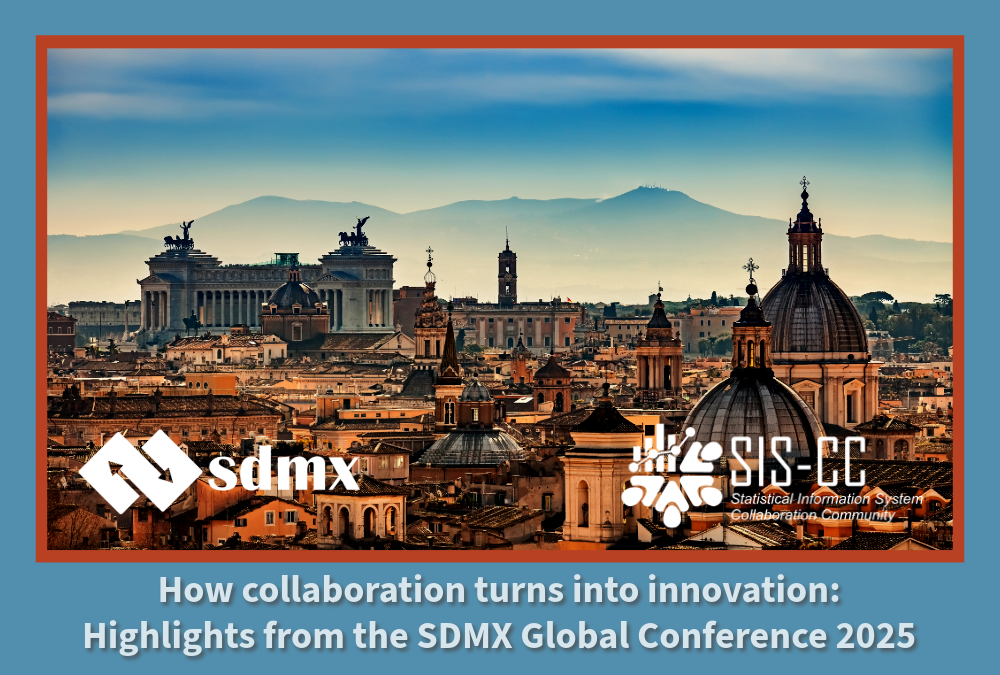
Across the global statistical system, the buzz around artificial intelligence is loud — but is the infrastructure ready to keep up? That’s the question the OECD set out to explore through its first AI-Readiness Survey, conducted ahead of the 22nd Meeting of the Committee on Statistics and Statistical Policy (CSSP), held in Geneva alongside the UNECE Conference of European Statisticians.
The goal? To uncover where countries actually stand in preparing their data, systems, and people for the era of AI. The survey responses — drawn from 36 national statistical offices and key partners — reveal both shared ambitions and critical gaps in readiness.
What the survey tells us
The survey marks one of the first coordinated efforts to assess the statistical community’s AI maturity. The central message is that Generative AI does not replace the need to modernise statistical processes — it reinforces it. To reap the benefits of AI, statistical organisations must systematically and at scale streamline their production pipelines, making their data and metadata truly machine-consumable. AI offers real potential to boost efficiency, unlock new services, and widen access — but only if the underlying data and infrastructure are fit for the purpose.
The survey provided a number of key insights:
- AI-ready (meta)data must be harmonised, structured, multilingual, and enriched with high-quality metadata to be usable by AI agents and LLMs — or contribute to train or fine-tune them.
- Statistical standards like SDMX are central to the AI-readiness agenda and must be extended or complemented to better support interoperability with AI agents and platforms.
- Main opportunities for international collaboration identified by NSOs include: (a) co-investment in frontier R&D initiatives, (b) development of AI-ready features in statistical standards, (c) collective engagement with the big tech, as well as (d) development of AI-ready frameworks, starter kits, and (e) developing and connecting innovation hubs.
From concept to capability
This spirit is already embodied in ongoing SIS-CC initiatives like the SDMX+AI project, launched in 2023. Two promising pilot tracks are currently under review:
- StatGPT (led by the IMF): A conversational AI assistant for statistics, introduced at CSSP 2024.
- AI-Boosted Data Explorer: A natural-language search tool for structured data, leveraging metadata to support plain-language queries.
These projects exemplify how co-investment, underpinned by common standards such as SDMX, can accelerate innovation, helping members turn AI potential into practical, open assets for the global community.
The road ahead
As the OECD and SIS-CC look ahead to beyond 2025, the AI-readiness agenda will continue to be shaped by both strategic alignment and practical experimentation. From augmenting statistical pipelines with synthetic training sets to embedding AI in recruitment and metadata workflows, the transformation is already underway.
To succeed, the community must invest not just in tools — but in standards, skills, and shared strategies. OECD looks forward to actively push this agenda forward, in collaboration with the statistical community, in the context of the international standardisation efforts (SDMX especially, as well as BIS-led SDMX.IO ), and under the UNECE High Level Group for the Modernisation of Statistics (HLG-MOS ModernStats). Collboration with private sector through industry associations (such as, the AI Alliance), is also a path to explorer.
Learn more about the survey’s results by checking the report on it at CSSP, by Eric Anvar (OECD), here. Want to get involved? Subscribe to the Community newsletter to be one of the first to know as we continue shaping a smarter, more open, and truly AI-ready future for official statistics.
The mission of the Committee on Statistics and Statistical Policy (CSSP) is to support policymaking based on high-quality, internationally acceptable comparable data and evidence-based analysis and to provide this statistical information to all interested users, including civil society and the public at large.
SDMX, which stands for Statistical Data and Metadata eXchange, is an ISO Standard designed to describe statistical data and metadata, normalise their exchange, and improve their efficient sharing across statistical and similar organisations.


